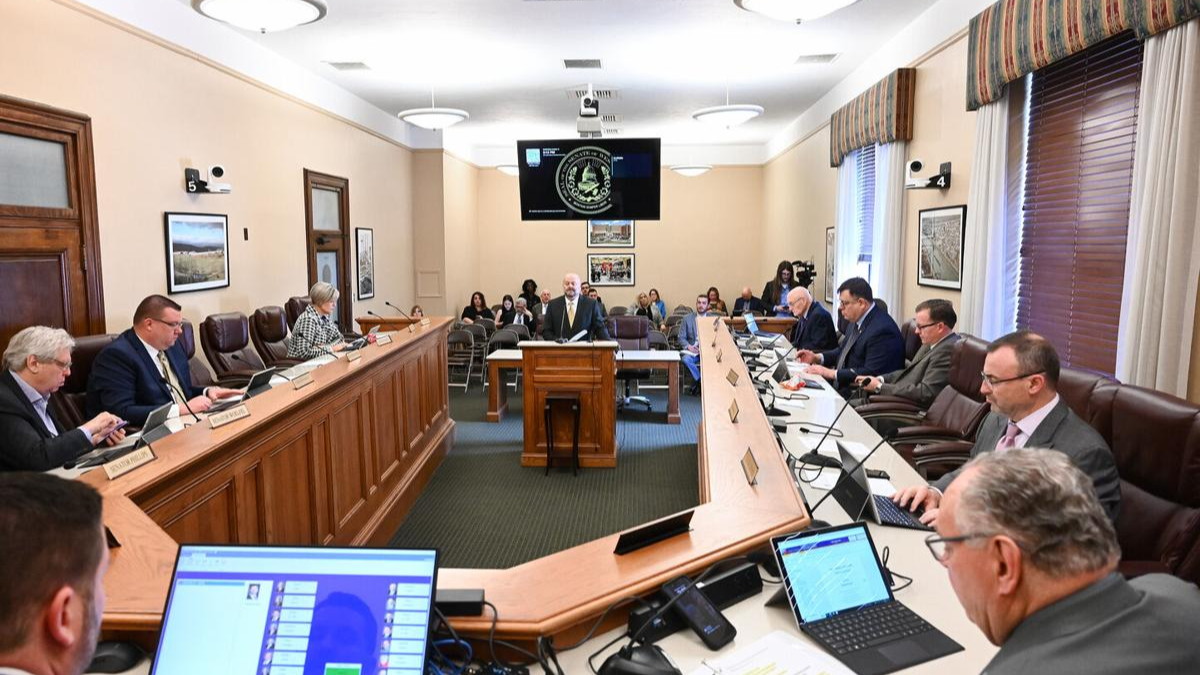Bill Rejected After Brief Consideration
CHARLESTON, W.Va. — After a three-year gap, West Virginia lawmakers have once again declined to pass legislation that would have created a central legal advertisement database, potentially affecting the role of community newspapers.
On Tuesday, the state Senate Finance Committee voted against recommending Senate Bill 891 (SB 891) for passage to the full Senate. The bill was introduced just a day prior, meeting Senate rules for bill introductions.
Proposed Changes in Legal Advertisements
If passed, SB 891 would have established a state-run legal advertising website under the management of the Auditor’s Office. This platform, set to launch in January 2026, would have provided free public access to legally required advertisements.
The bill also included provisions for an electronic affidavit system to verify the publication of legal notices on the new website. Currently, state law mandates that legal advertisements—such as court notices, public statements, and required government information—be published in qualified daily or weekly newspapers.
Legal Advertising Requirements in West Virginia
West Virginia’s Constitution mandates that citizens stay informed about government activities, especially those involving public funds. This is why legal advertisements are required in newspapers under state law, covering more than 400 specific situations.
Legal advertisements are classified into different types:
- Class I – Published once.
- Class II – Published weekly for two consecutive weeks.
- Class III – Published weekly for three consecutive weeks.
- Class I-0, II-0, and III-0 – Variants of the above classifications.
The state regulates newspaper pricing for legal advertisements based on word count and circulation, though newspapers often provide discounts.
Incentives for Online Publication
SB 891 aimed to encourage the use of the state’s central legal advertising website for Class II and III ads. While the bill did not require counties and cities to switch to the online system, it proposed reducing the number of times legal ads must be published in newspapers if they also appeared on the state website.
A successful amendment by Sen. Mike Oliverio, R-Monongalia, would have prohibited local governments from charging citizens fees for legal advertisements if they used the state’s online system.
Past Attempts to Reform Legal Ad Publication
Efforts to change the way legal ads are handled in West Virginia have been ongoing since 2019. A similar bill was introduced in 2022 but never made it past the House Judiciary Committee.
A 2019 report from the Legislative Auditor’s Office suggested that moving legal ads to a centralized, free website could save state and local governments money while increasing accessibility.
In 2021, the Legislature passed Senate Bill 642, creating a public notice database for state-level legal notices. However, a review of the database found that many notices had fewer than 10 views, with some receiving no views at all.
Criticism of the State-Run Website
Doug Skaff Jr., president of HD Media and interim executive director of the West Virginia Press Association, criticized the proposed system, questioning its effectiveness.
“The auditor’s website is already up and running—check how many people have used it since 2021,” Skaff said. “We tested this system, and after four years, it hasn’t worked.”
Instead, the West Virginia Press Association manages wvlegals.com, a legal notice website for newspapers across the state. Skaff reported that in the last 30 days, 100,000 people visited the site to check public notices.
Supporters Argue It Saves Taxpayer Money
Supporters of the bill, including Senate Finance Committee Chairman Rollan Roberts, R-Raleigh, argued that it would not eliminate newspaper ads but provide an additional option for counties to reduce expenses.
“I don’t think we’re taking anything away; we’re adding an option,” Roberts said. “Some communities lack access to both newspapers and the internet, so this isn’t forcing anyone to make a change.”
Opponents Warn of Reduced Transparency
Opponents, including the West Virginia Press Association, believe that reducing the publication time for legal notices in newspapers could lower public awareness instead of increasing it.
Another major concern is limited broadband access in parts of the state. Many worry that moving legal notices online could make them harder to find for residents without reliable internet.
Skaff highlighted how smaller newspapers depend on legal advertising revenue. “Small-town weekly newspapers rely on public notices,” he said. “If they disappear, jobs will be lost, and communities will lose critical sources of information.”
Bipartisan Opposition to SB 891
The Senate Finance Committee’s opposition was bipartisan, with members raising concerns about how reducing newspaper notices could impact industries like natural gas.
Sen. Charles Clements, R-Wetzel, warned that if legal notices for property sales move online, landowners might miss out on crucial information about their assets.
He cited an example of a woman in Washington state who avoided losing her gas rights after a neighbor saw the notice in a local paper.
Senate Minority Leader Mike Woelfel, D-Cabell, agreed, stressing that many West Virginians still rely on newspapers for legal notices.
“I feel like we’re doing a disservice to people who don’t have online access,” Woelfel said. “Newspapers keep people informed in ways digital platforms cannot.”
Final Decision: Bill Rejected
After hearing arguments from both sides, the Senate Finance Committee ultimately voted against recommending SB 891 for passage. This decision keeps West Virginia’s legal advertising system unchanged—for now.
However, given the repeated efforts to introduce similar legislation over the years, it is likely that lawmakers will revisit this issue in the future.










